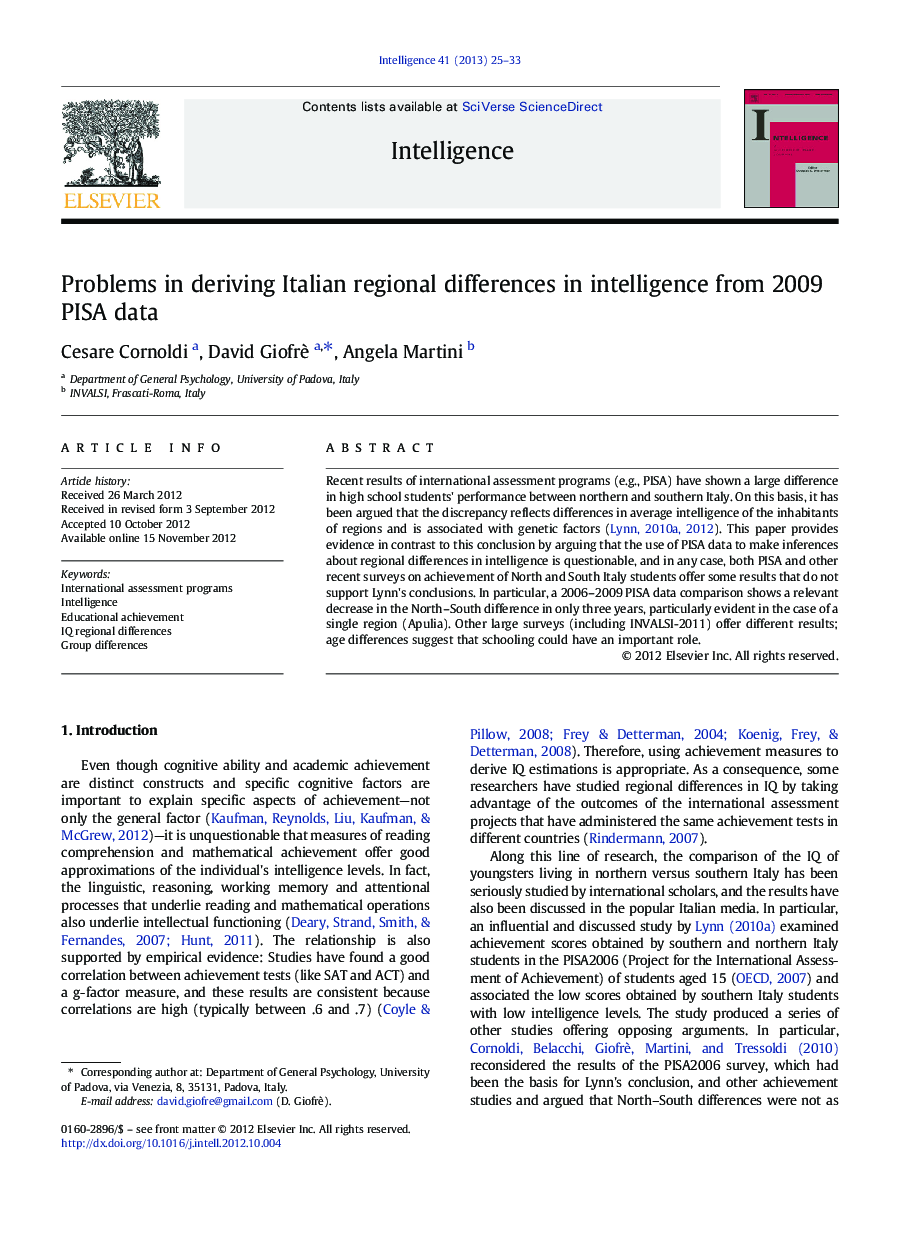| Article ID | Journal | Published Year | Pages | File Type |
|---|---|---|---|---|
| 929219 | Intelligence | 2013 | 9 Pages |
Recent results of international assessment programs (e.g., PISA) have shown a large difference in high school students' performance between northern and southern Italy. On this basis, it has been argued that the discrepancy reflects differences in average intelligence of the inhabitants of regions and is associated with genetic factors (Lynn, 2010a and Lynn, 2012). This paper provides evidence in contrast to this conclusion by arguing that the use of PISA data to make inferences about regional differences in intelligence is questionable, and in any case, both PISA and other recent surveys on achievement of North and South Italy students offer some results that do not support Lynn's conclusions. In particular, a 2006–2009 PISA data comparison shows a relevant decrease in the North–South difference in only three years, particularly evident in the case of a single region (Apulia). Other large surveys (including INVALSI-2011) offer different results; age differences suggest that schooling could have an important role.
► PISA data cannot be used to make inferences about the population's intelligence. ► Improvement of the South Italy performance in internationals surveys. ► The spectacular improvement in Apulia between PISA 2006 and 2009.
